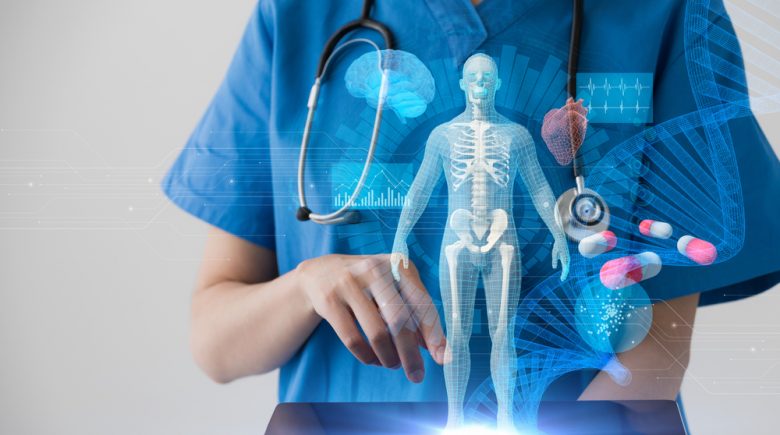We are living in the age of medical breakthroughs that are giving people with healthcare issues a better life and a longer life. Healthcare innovations are helping worldwide populations with health issues of all types.
In 2019, a laser style breakthrough process to remove inoperable brain tumors has burst onto the global healthcare field. The symptoms of different types of tumors of the brain resulted in memory loss which was often mistaken for early dementia.
Brain tumors also caused muscle weakness, vocal disruptions, impotence, high blood pressure, and coordination issues. Healthcare breakthroughs and the advancement in technology is amazing.
Medical science is evolving at a phenomenal rate. In addition to defeating brain tumors, promising healthcare innovations that have perfected cures, let’s look at a few:
1. Genome Specific Medication
Genome customized medications have been created to address individual healthcare issues. The drug industry can now create medications that are tailored specifically to you and me.
Based on our genes, several personalized medications have been created. Thus, new drugs are called “gene therapy” medications. The research continues to fine tune gene sequencing prescriptions that are designed to address everyone’s health issues.
Gene designed medications have been tested and researched since 2000. Now, their tailored perfection is closer than ever. Great news! The U.S. FDA is on board in approving many of these new gene therapy drugs.
Currently the FDA has approved gene therapy medications to address issues associated with eyesight problems and blood cell diseases like hemophilia, sickle cell, and leukemia.
2. Improved Hearing Aids
A recent TV ad regarding improved hearing aids caught my attention recently. The recent technological advancements in digital health aids is being released in 2019 with further innovations being release in 2020.
Presently, our hearing aid innovations include devices that are customized to fit our specific hearing loss. Their new amplified technology softens all sounds from longer distances than many older models.
New hearing aid amplifiers for next year will allow the wearer to use their hearing device to sync with their smartphones and Bluetooth connectivity where you can also listen to music.
Options in design enable users to have their hearing amplifier hidden within their ear comfortably or to wrap around their ear. Newer designs will further feature slender hearing aids that look very fashionable.
Future features include the ability to translate foreign speech, the ability to send a signal if you fall down, and the ability to keep track of your brain and body health.
3. No More Diabetic Injections
Healthcare treatments for Type 1 diabetes is right around the corner. The U.S. and their global research partners are close to crating a stem cell answer to address introducing insulin in the body for diabetics.
Stem cell research is ready to announce a way to treat diabetes by helping the body to create new insulin-making cells. It is common knowledge that the body alone cannot create insulin.
For this reason, diabetics must inject insulin several times a day to preserve their health. Research is proving promising on developing cells located within the pancreas to produce insulin.
Stem cell experts believe that transplanting the cells in people with diabetes is a medical miracle that will positively save people’s lives. Researchers believe that they are one pre-clinical step away from this amazing breakthrough.
4. Spray Away Burns
Having been tested and is being used in China, Canada, and Australia, is a spray-on skin cell treatment that heals burns. Minor or severe burns can now be treated with a spray-on skin.
Burn victims have been treating by grafting skin from other parts of the body. Now, scientists have invented a new technique that consists of harvested skin cells and has suspended them in a spray-on solution.
With this new burn healing solution, the new skin that is created presents no scarring, no unsightly pigmentation changes and no infections. This new skin cell treatment for burns is leading to other breakthroughs to address the growth of diseased glands, hair, and much more.
5. AI in Healthcare
Healthcare has been enhanced with the introduction of Artificial Intelligence (AI). We have seen just the beginning evolution of AI in healthcare. Arm band devices that measures your heart rate, walking speed, and dietary requirements, are just the beginning.
New and innovative healthcare technology devices are designed to detect prescription drug interactions within the human body. Also, doctors will be able to feed information into an AI based system regarding ancestral family health that will give them a better look at your healthcare history for a faster and more accurate diagnosis.
Wearable mobile devices will enter the market shortly allowing physicians to send patients appointment notifications, to send you lab tests and their outcome, and to send patients reminders about diet and medications.
Senior citizens will soon be introduced to a personalized “chatbot,” that serves as a personal assistant. The chatbot character will connect them to different technologies and warn seniors about possible drug interactions.
6. Organ Bio-Print
3D printing has gone from creating clothing to parts for machinery pieces and now printing organ tissues. Bioprinting is the term for creating human organs like kidneys, hearts, and liver. Yes, 3D printing does require an inking process. However, in bio-printing the ink factor are made of human cells and tissues.
This evolutionary process will not require any animal testing. Instead, AI or IoT (Internet of Things) machinery will help develop 3D bio-printing of organ tissues. The only challenge is to create a blood vessel network to support 3D human organs.
Researchers around the world believe that they are close (within 2-3 years) to a fully bio-printable and functional organ. This development lessens the need for real human organ transplants and increasing the life of patients who are on long wait lists.
Healthcare Endnote
Technological developments in healthcare has already saved patients and its innovations continue to improve our quality of life. Also, technology in the medical field is having a major impact throughout the field of healthcare and its professionals.
For the year 2020 and beyond, technology will feature health care indices everywhere. We will see more mobile health functions, telemedicine, monitoring remotely, and ingestible sensors that will send your personalized data to physicians, allowing them to succinctly track your every internal sensor migration in real time.
We are living in the age of medical breakthroughs that are giving people with healthcare issues a better life and a longer life. Healthcare innovations are helping worldwide populations with health issues of all types.
In 2019, a laser style breakthrough process to remove inoperable brain tumors has burst onto the global healthcare field. The symptoms of different types of tumors of the brain resulted in memory loss which was often mistaken for early dementia.
Brain tumors also caused muscle weakness, vocal disruptions, impotence, high blood pressure, and coordination issues. Healthcare breakthroughs and the advancement in technology is amazing.
Medical science is evolving at a phenomenal rate. In addition to defeating brain tumors, promising healthcare innovations that have perfected cures, let’s look at a few:
1. Genome Specific Medication
Genome customized medications have been created to address individual healthcare issues. The drug industry can now create medications that are tailored specifically to you and me.
Based on our genes, several personalized medications have been created. Thus, new drugs are called “gene therapy” medications. The research continues to fine tune gene sequencing prescriptions that are designed to address everyone’s health issues.
Gene designed medications have been tested and researched since 2000. Now, their tailored perfection is closer than ever. Great news! The U.S. FDA is on board in approving many of these new gene therapy drugs.
Currently the FDA has approved gene therapy medications to address issues associated with eyesight problems and blood cell diseases like hemophilia, sickle cell, and leukemia.
2. Improved Hearing Aids
A recent TV ad regarding improved hearing aids caught my attention recently. The recent technological advancements in digital health aids is being released in 2019 with further innovations being release in 2020.
Presently, our hearing aid innovations include devices that are customized to fit our specific hearing loss. Their new amplified technology softens all sounds from longer distances than many older models.
New hearing aid amplifiers for next year will allow the wearer to use their hearing device to sync with their smartphones and Bluetooth connectivity where you can also listen to music.
Options in design enable users to have their hearing amplifier hidden within their ear comfortably or to wrap around their ear. Newer designs will further feature slender hearing aids that look very fashionable.
Future features include the ability to translate foreign speech, the ability to send a signal if you fall down, and the ability to keep track of your brain and body health.
3. No More Diabetic Injections
Healthcare treatments for Type 1 diabetes is right around the corner. The U.S. and their global research partners are close to crating a stem cell answer to address introducing insulin in the body for diabetics.
Stem cell research is ready to announce a way to treat diabetes by helping the body to create new insulin-making cells. It is common knowledge that the body alone cannot create insulin.
For this reason, diabetics must inject insulin several times a day to preserve their health. Research is proving promising on developing cells located within the pancreas to produce insulin.
Stem cell experts believe that transplanting the cells in people with diabetes is a medical miracle that will positively save people’s lives. Researchers believe that they are one pre-clinical step away from this amazing breakthrough.
4. Spray Away Burns
Having been tested and is being used in China, Canada, and Australia, is a spray-on skin cell treatment that heals burns. Minor or severe burns can now be treated with a spray-on skin.
Burn victims have been treating by grafting skin from other parts of the body. Now, scientists have invented a new technique that consists of harvested skin cells and has suspended them in a spray-on solution.
With this new burn healing solution, the new skin that is created presents no scarring, no unsightly pigmentation changes and no infections. This new skin cell treatment for burns is leading to other breakthroughs to address the growth of diseased glands, hair, and much more.
5. AI in Healthcare
Healthcare has been enhanced with the introduction of Artificial Intelligence (AI). We have seen just the beginning evolution of AI in healthcare. Arm band devices that measures your heart rate, walking speed, and dietary requirements, are just the beginning.
New and innovative healthcare technology devices are designed to detect prescription drug interactions within the human body. Also, doctors will be able to feed information into an AI based system regarding ancestral family health that will give them a better look at your healthcare history for a faster and more accurate diagnosis.
Wearable mobile devices will enter the market shortly allowing physicians to send patients appointment notifications, to send you lab tests and their outcome, and to send patients reminders about diet and medications.
Senior citizens will soon be introduced to a personalized “chatbot,” that serves as a personal assistant. The chatbot character will connect them to different technologies and warn seniors about possible drug interactions.
6. Organ Bio-Print
3D printing has gone from creating clothing to parts for machinery pieces and now printing organ tissues. Bioprinting is the term for creating human organs like kidneys, hearts, and liver. Yes, 3D printing does require an inking process. However, in bio-printing the ink factor are made of human cells and tissues.
This evolutionary process will not require any animal testing. Instead, AI or IoT (Internet of Things) machinery will help develop 3D bio-printing of organ tissues. The only challenge is to create a blood vessel network to support 3D human organs.
Researchers around the world believe that they are close (within 2-3 years) to a fully bio-printable and functional organ. This development lessens the need for real human organ transplants and increasing the life of patients who are on long wait lists.
Healthcare Endnote
Technological developments in healthcare has already saved patients and its innovations continue to improve our quality of life. Also, technology in the medical field is having a major impact throughout the field of healthcare and its professionals.
For the year 2020 and beyond, technology will feature health care indices everywhere. We will see more mobile health functions, telemedicine, monitoring remotely, and ingestible sensors that will send your personalized data to physicians, allowing them to succinctly track your every internal sensor migration in real time.



